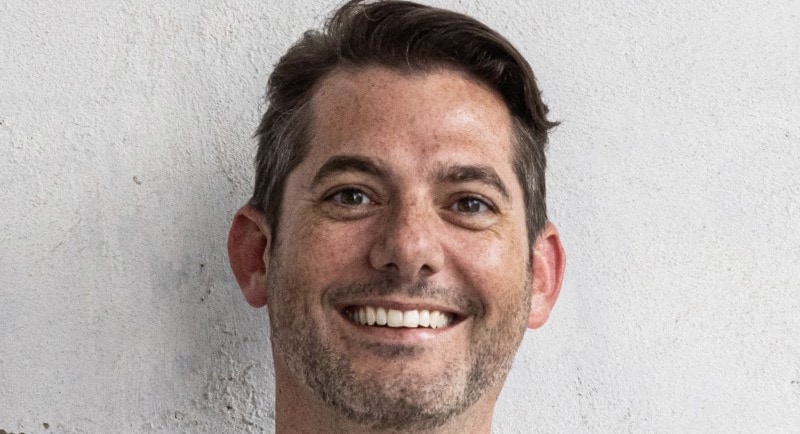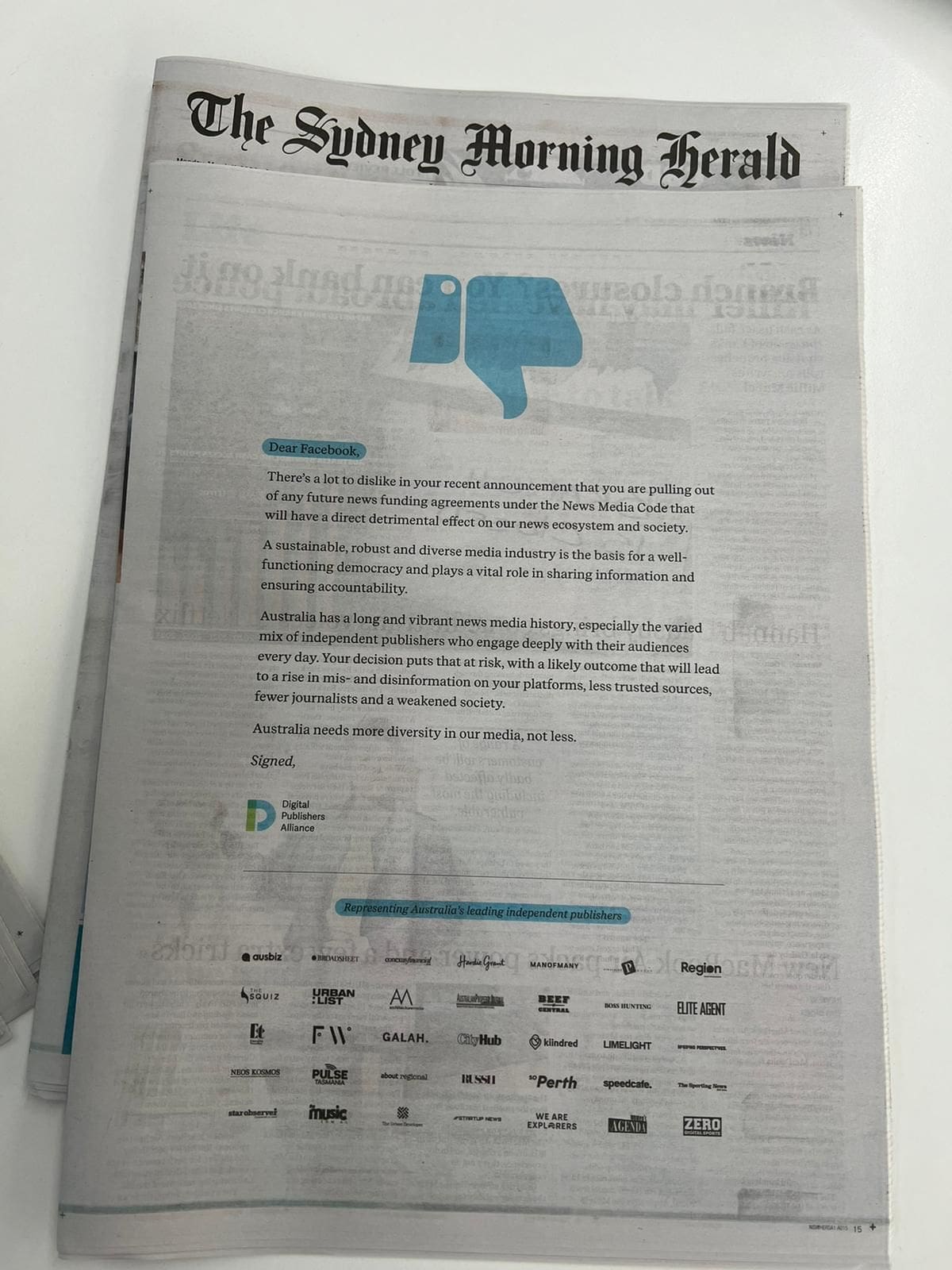The government choosing to designate Meta under the News Media Bargaining Code would be “devastating” for smaller and independent publishers, and prevent future publishers from launching at all, according to Tim Duggan, chair of the Digital Publishers Alliance and co-founder of Junkee Media.
“Why would any young person out there ever want to start a media business if they knew that at any stage, their audience could be just taken away from them with the flick of a switch?” Duggan told Mediaweek.
Duggan comments followed the Digital Publishers Alliance taking out full page ads in yesterday’s newspapers, including The Australian, AFR, Sydney Morning Herald, and The Age; “We didn’t tell anyone else that this was happening until it dropped.”
The goal was to “get attention in any way for the independent publishing industry”. Duggan said it worked.
“If my phone and email inbox are any indication of the impact that full-page ads and op-eds can still have, today, we have spoken to all levels of government, the media, and lots of new publisher members wanting to join us.”
When asked if there is something to be said for the fact that the campaign has been published in print, in papers owned by the very media companies urging the government to designate Meta, Duggan said the team is “a happy part of the whole ecosystem, of which print and legacy media are a huge and important part.”
Using full-page ads in major media publications to spread the message of smaller, independent titles proves that publications “have more in common than we do against each other,” according to Duggan.
“There’s a solidarity – certainly not across the board, but there is a solidarity – in media of fighting this fight together. There’s an interest in having a really strong media ecosystem, and that includes large publishers and smaller, independent publishers. If any of that was under threat, I think the whole industry would be worse for it.
“If anything, this has shown the power of cross-media, and the power of big and small publishers all coming together to say, something is going on here that is not right, and we need to fix it.”
If the government designates Meta – forcing it into arbitration with publishers over the cost of news, after it confirmed it would not renew any of its deals under the News Media Bargaining Code when they expire this year – Meta could decide to pull news from its platforms altogether, like it did in Canada.
This disproportionately affects “the little guys,” Duggan said.
“Independent publishers were forgotten a lot in the early conversations around the news media code, and therefore most independent publishers missed out on any funding, despite years and years of trying.
“What we are trying to do now is ensure that independent publishers have a voice at the table when big decisions are being made.
“The impact of audiences not being able to read news would be terrible for our functioning democracy, and for publishers who rely on Facebook and Instagram to drive traffic audience and revenue. It would be a huge blow that a lot of small publishers might not be able to recover from.”
Duggan also said he has “a real concern” for the future of digital publishing, and how Meta’s decision would impact current publishers as well as the news ecosystem in Australia over the next 10 years. In an op ed for The Australian yesterday, Duggan recounted a story from 2018; he was in the room with Campbell Brown, Facebook’s global head of news partnerships, as she gave publishers an ultimatum.
“She explained that if we didn’t co-operate with the largest social media company in the world, our businesses would likely soon be dead.
“‘We will help you revitalise journalism,’ she initially offered. But it was quickly followed by a thinly veiled threat. ‘In a few years the reverse looks like I’ll be holding your hands with your dying business, like in a hospice.’
“I can still remember the air leaving the room the instant Campbell uttered those words. She tried to take them back, but it was too late. The mental image she described couldn’t be erased, and the message was super clear: play ball with Facebook or else.”
That ‘or else’ is now being tested. The Daily Aus is one small publication fearing what Meta’s designation could mean for its future. Co-founder Zara Seidler told Mediaweek last week that it is urging its half a million Instagram followers to subscribe to its newsletter and strengthen their direct relationship with the media company.
If Meta removes news from its platforms, “All we’ll see is moving from trust in brands, to young people looking at influencers or creators to give them news and commentary. That is going to be void of any fact-checking or any kind of evidence-based claims, and I think that it’s a huge issue that needs to be taken seriously.”
–
Top Image: Tim Duggan

